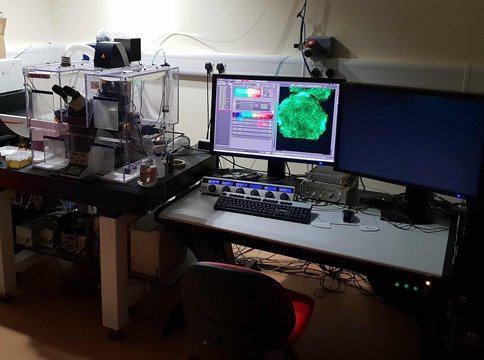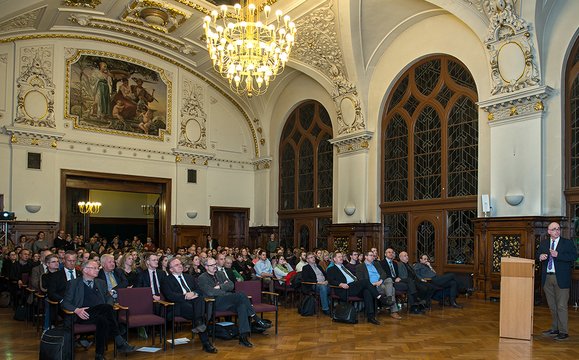Aim of the exchange program is to establish a productive research network between biomedical research institutions at Martin Luther University Halle-Wittenberg (MLU) and in Oxford (United Kingdom).
In addition to research internships of several months for employees and students and a lecture series, long-term exchanges within the framework of cooperations, symposia, invitations of guest scientists from Oxford and, in particular, a biomedical research group with cooperation partners in Oxford are supported. This is intended to advance the profiling of the medical faculty in the field of molecular medicine.
Strong positive effects can be seen especially in the area of internationalization and high-quality promotion of young talent. We also expect this cooperation network, with a funding period from December 2016 to December 2022, to provide significant innovative impulses for the economy of Saxony-Anhalt.
HAL-OX, the Halle - Oxford International Research Network ‘Disease Biology and Molecular Medicine’, was initiated by the Medical Division of the Martin-Luther-University Halle-Wittenberg (MLU) in 2014, with the aim of fostering research exchange and scientific excellence between biomedical researchers of the Martin-Luther-University Halle-Wittenberg and biomedical research institutes in Oxford (Great Britain).
For historical reasons, the Martin-Luther-University Halle-Wittenberg has well-developed academic ties to the East (Poland, Russia, China etc.) but much less exchange with Great Britain, one of the leading research nations in Europe and also a significant trade partner of the state of Saxony-Anhalt.
The project was initially started with seed funding from the State of Saxony-Anhalt (€35,000), as well as financial and staff support by the City of Halle (Saale) and by the open access journal CELL COMMUNICATION AND SIGNALING.
In 2017, HAL-OX received grant funding from the European Social Fund (ESF) of European Union (EU), which currently runs until the end of 2022 and encompasses approximately €2.1 million from the EU (plus a contribution of 20% by the Martin-Luther-University Halle-Wittenberg).
The support of junior researcher career development through research fellowships, other travel support etc. is a major component of the HAL-OX research network. Medical students as well as natural science students and graduates with ties to the Martin-Luther-University Halle-Wittenberg medical division are entitled to apply for funds. However, also senior research staff can benefit from this program, for example in the context of professional training, conferences or collaborations. HAL-OX also funds a junior professor and research group, including several scientific staff positions.
Tenure-track Jun.Prof. Dr. Michael Böttcher, an expert in CRISPR-based technologies, has taken up his post in the Institute of Molecular Medicine, which is based in the Charles Tanford Protein Research Center in April 2019.
Furthermore, HAL-OX organizes a high-profile lecture series, inviting prominent researchers from Oxford but, occasionally, also from other international research centers of excellence. The lectures and subsequent reception and speaker’s dinners also provide opportunities for casual networking and for students to find out more about potential host research groups. The HAL-OX network is organized by tumor biologist Prof. Stephan Feller.
HAL-OX Project coordinator and responsible for website content: Prof. Stephan Feller
Medizinische Fakultät
der Martin-Luther-Universität Halle-Wittenberg
Institut für Molekulare Medizin
Arbeitsgruppe Tumorbiologie
Charles-Tanford-Proteinzentrum
Kurt-Mothes-Straße 3a
06120 Halle (Saale)
Telefon: 0345 552 2915
stephan.feller@uk-halle.de
HAL-OX Secretary: Tanja Wolf
Medizinische Fakultät
der Martin-Luther-Universität Halle-Wittenberg
Institut für Molekulare Medizin
Charles-Tanford-Proteinzentrum
Kurt-Mothes-Straße 3a
06120 Halle (Saale)
Telefon: 0345 557 3862
tanja.wolf@uk-halle.de
On the flyer there is an overview of the invited guest speakers for the lecture series, the junior research group as well as the funded research fellows.








